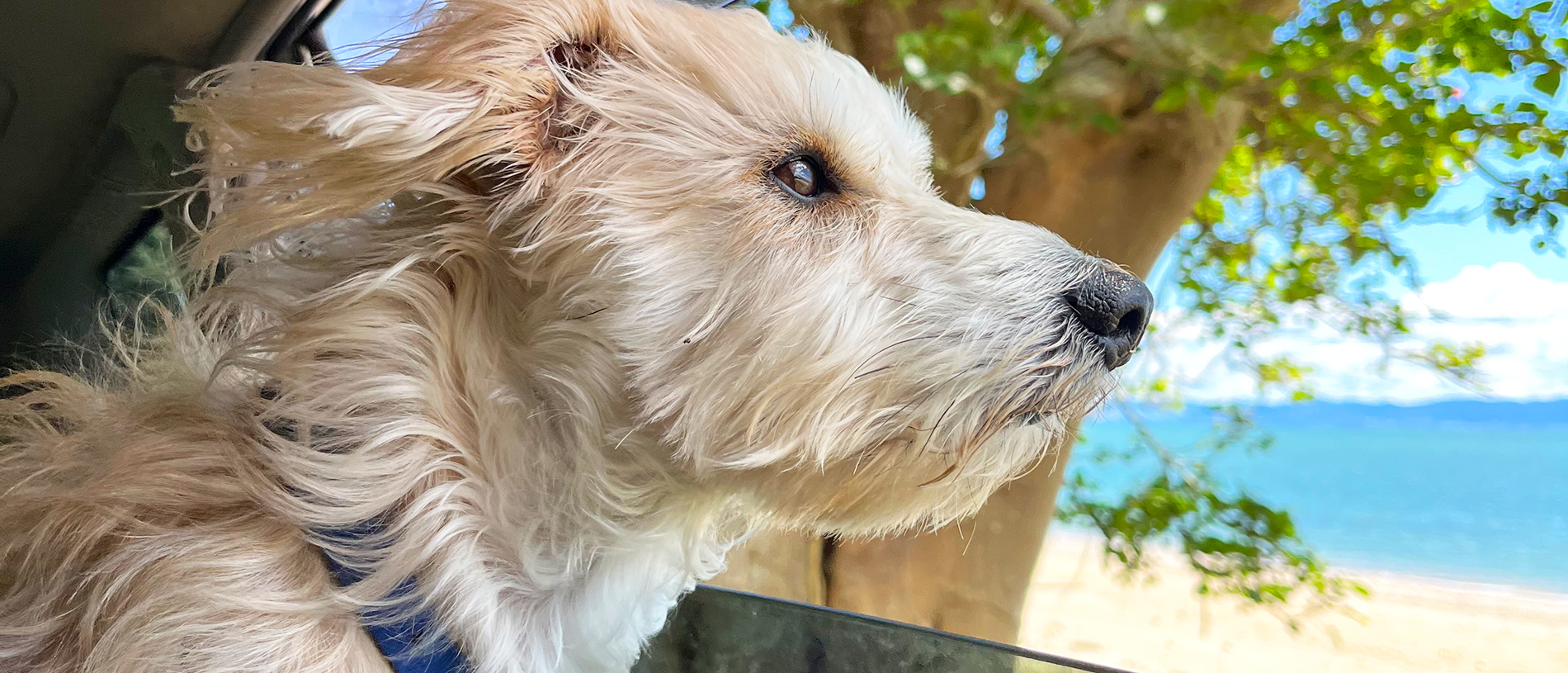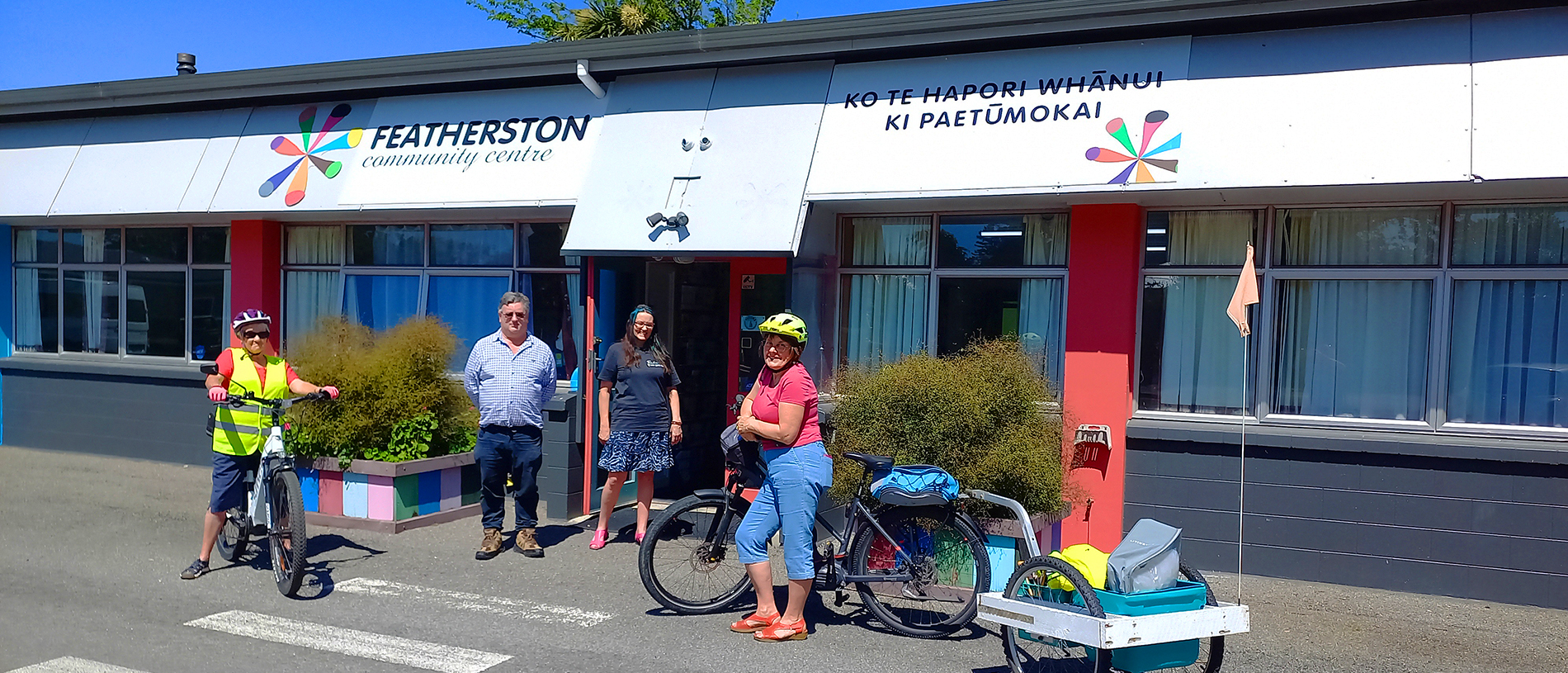
A dog-friendly Coromandel road trip
We discover the benefits and challenges of taking a dog on a Coromandel road trip.

When Kelly Warriner-Simpson moved to Featherston from Wellington, one of the first things she did was join a craft group at the local community centre. She knew her two young children would easily find buddies through school, but being new to the village she was keen to make her own friends.
It was a decision that led her to a whole bunch of supportive locals who helped her feel right at home.
Those who’ve worked hard to create Featherston Community Centre will be proud. They’d strived to create a hub for groups in South Wairarapa, initially renting an old Telecom building in 1991, then buying it five years later – all with money raised through bingo nights.

The weekly knitting group Kelly has now attended for nearly seven years attracts up to 30 crafters each week, a number of whom live rurally and drive 20 minutes each way. Its founders, May Brown and Virginia Kunz started with a small group which rapidly mushroomed. From the cheerful chatter and sounds of frivolity it’s clear it’s not just a chance to craft colourful blankets, teddies and clothes destined for good causes like Plunket and Women’s Refuge, but also to share laughs, news and forge friendships.
“It’s the best group of ladies!” says Kelly, whose youngest child is now 11. “This is how I made some of my first and strongest friendships when I came over here. It’s also how people find out what’s happening in the area.”
The centre is tucked down a driveway off a residential street. Community-owned, it’s a constant hive of activity. Not only is there plethora of other activities – from a children’s chess club and drama group, to pilates, yoga, ukulele and belly dancing – it also serves as a food collection and distribution centre with its community pantry, Pātaka Kai.
It’s also a space where support groups meet – Cancer Society, Alcoholics Anonymous, Autism Wairarapa – with quieter areas that are used by mental health providers and even a debt management coach.

Its heart is an engine that drives the good work, an army of volunteers including Board members who are always willing to pitch in, and Trust Manager Jo Baldwin.
When locals share new ideas to benefit the community, Jo sparks into action doing all she can to support, from offering space within the building, to helping spread the word and making funding applications.
She’s assisted by one other paid member of staff, Peter Paton, who, like Jo, is just as comfortable pitching in to make soup to share with the community in the facility’s kitchen when excess produce is dropped off.
Jo has worked closely over recent years with Hana Makin, who’s also been based in the Centre as part of the Fab Feathy community-led initiative. Sharing an office has helped a cross-pollination of ideas; the giant whiteboard is overflowing with plans. Dominating one entire side are notes for Featherston’s First Friday Festival events, running throughout summer, when the village of nearly 3,000 celebrates with free music, arts projects and kai at the ‘Squirkle,’ the town’s square that’s actually circular.
Like other news, these events are publicised in another of their initiatives: the town’s own magazine Phoenix. The colour monthly was resurrected by the Trust after the previous editor needed to step back. Jo collates locals’ contributions, ensuring deadlines are met and the magazine reaches its loyal readership.
“Not everybody uses Facebook,” Jo says. “There are so many reasons people don’t go online but that doesn’t mean they don’t want to know what’s going on in their community. So, we produce 2,000 copies that are delivered for free. “We’re guardians of things that are at risk of slipping away in the modern age.”

The Featherston info website is another initiative that likely would have fallen by the wayside, had it not been taken on by the Trust.
“It’s the kind of community where everyone mucks in,” Jo says, and that included during a major upgrade of the public kitchen to commercial standards to better serve locals. Needless to say, there was no shortage of volunteers to make it all happen. Excess food created in the cooking classes the kitchen can now accommodate is frozen, ready to be distributed when locals are in need.
An annual survey ensures the Centre is aware of what’s needed in the community. “That’s important, to help us plug the gaps,” Jo says. “Coming from city life, I realise there are many things that aren’t available in small towns, so it’s about listening to people on the ground to find out what they actually need and what is important to them.”
Story and photographs by Fiona Terry for the Summer 2023 issue of AA Directions Magazine. Fiona Terry is a Nelson-based freelance writer who regularly contributes to AA Directions Magazine.